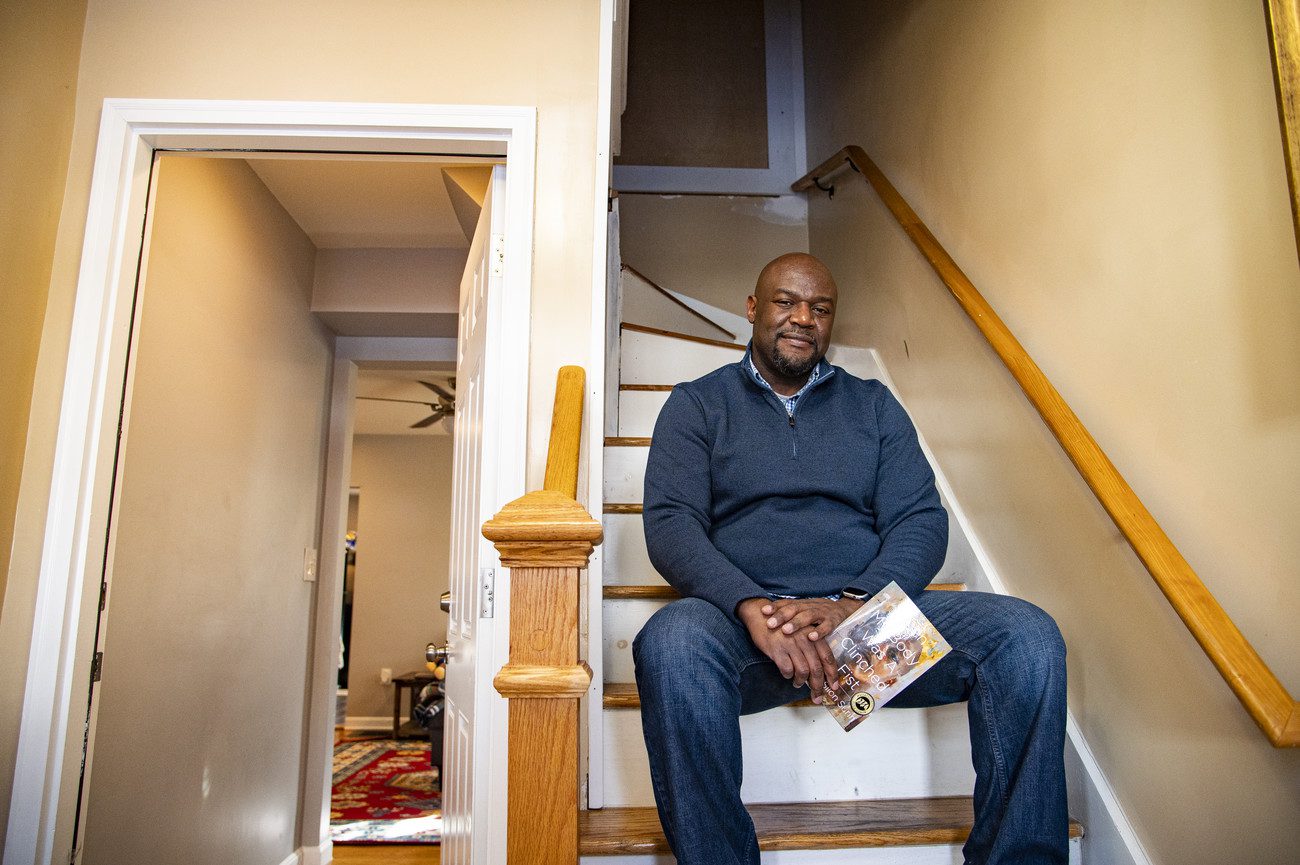SWAMPSCOTT — Enzo Silon Surin vividly remembers the first time he wrote a poem.
One rainy day around his junior high-school years, Surin was looking out the window, noticing how the rain was falling on a side of a tree and thought, “Is the tree crying? Is the tree sad? I wonder if the tree is crying because it is sad or because it knows that I’m sad, but I can’t cry my own tears.”
Surin found his thoughts interesting and later wrote his first loose poem.
“I was reflecting on the fact that I was harboring feelings that I couldn’t express,” said Surin. “It became a way of expressing myself and I’ve never stopped writing poetry ever since.”
Now, Surin is a published poet, educator, speaker, publisher and social advocate. He is a recipient of the Massachusetts Book Award for Poetry, a Brother Thomas Fellowship from the Boston Foundation and a PEN New England Celebrated New Voice in Poetry.
Surin, who has been living in Swampscott for the last two years, came to Massachusetts from New York City to attend the Creative Writing program at Lesley University and stayed. He said that a part of him can be slower paced, mild-mannered and even shy, which matches the flow of life in the oceanside town, but he also embodies the hustle and bustle of the Big Apple.
“I am a combination of Haiti and growing up in New York City,” said Surin.
Surin was born in Haiti, which gained independence from French colonial rule in 1804. For many years it had Black presidents, doctors, teachers and shop owners.
In 1984, protests against Jean-Claude Duvalier, a second-generation dictator, swept the country. Due to the terror and violence, Surin’s family decided to leave Haiti when he was 8 years old and settled in Jamaica neighborhood of the New York City’s borough of Queens.
In the U.S., Surin had to relearn how other people perceived him and get used to living within the newly found constraints of being Black in America, a system that tries to both define you and target you because of that definition, he said.
“If I am with somebody, I have to make sure that I’m paying attention to what’s around me because the two of us bring attention. If there’s four of us on the corner, laughing, then we are a mob,” said Surin.
He couldn’t keep his hands in his pockets or just go for a run. Nuances like that feel debilitating because they wear one down, Surin said.
“We didn’t create the term Black in that way,” said Surin.
But Black people started to identify with this category that began to often mean something negative, he said, and policies have been created around this category.
He explores these feelings in his chapbook “A Letter of Resignation,” which talks about him quitting the idea of history that was crafted for him.
“It’s about empowering folks to say, ‘We’re tired of being the scapegoat for America’s problems because in fact we’re America, too,’” said Surin. “And we want to be just left alone to be, not asking for anything other than allow us to be human beings and walk down the street and not fear something will happen to us.”
Surin’s first full-length poetry collection, “When My Body Was a Clinched Fist” (2020), follows a young boy coming of age in Queens and how he battles through an environment filled with drug use, social violence and police brutality. Surin’s second manuscript, ready for publishing and titled “American Scapegoat,” continues to follow the boy who is now older, feeling like he made out of his circumstances and survived his childhood. But, in fact, he is still dealing with the same kind of things.
“And being a father of two boys, how am I going to raise these boys in this environment that still treats them the way I was treated when I was a kid?” said Surin.
In “American Scapegoat,” Surin’s rumination on the Black experience has reached its boiling point.
“I’m tired of having the same conversation with whoever will hear it,” said Surin. “If the book could yell out some stuff, that’s exactly what it would yell: I’m tired of this. Can’t you see?”
During the pandemic, going through some personal difficult times, Surin felt that his poetic voice was silent. He started taking photographs and posting them on Instagram with some prose, tagging them #lovenotesinapandemic. In these posts and his recent prose work, Surin addresses isolation, mental health, bettering oneself, empowering oneself and empowering others.
He also worked alongside other poets on an anthology of about 20 different authors titled “Where We Stand: Poems of Black Resilience,” which came out in the beginning of February.
“Black resilience is about this persistence, this letting go of the idea that you’re not enough and you need to do more,” said Surin.
Despite the struggles and injustices, Black Americans are still progressing, still loving the country, still being American. They are still loving and celebrating, and fighting, too, said Surin.
Some of the poets featured in the book are not Black, but Black resilience is also about identifying with a cause, Surin said, identifying with the fact that Black people or one’s Black friends might not be safe today and checking in on them.
“So it’s about allyship at a much different level,” Surin said.
On Feb. 28, Surin will read his work at Swampscott’s virtual celebration of the Black History Month organized by S.U.R.E. (Swampscott Unites, Respects, Embraces Diversity) community group and titled “Black History is OUR History: A Town-wide Celebration of Poetry and Reflections.”

